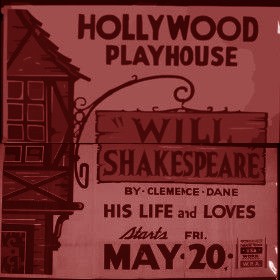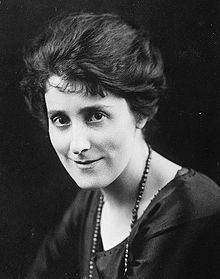Tags
christopher marlowe, Clemence Dane, Dark Lady, Emilia Bassano Lanier, Lucy Morgan, Mary Fitton, the Sonnets, William Shakespeare
 Of the several candidates for the role of Shakespeare’s Dark Lady of the Sonnets, three seem to catch (or have caught) the imagination of novelists and playwrights: Emilia Bassano Lanier, Lucy Morgan, and – though less and less – Mary Fitton.
Of the several candidates for the role of Shakespeare’s Dark Lady of the Sonnets, three seem to catch (or have caught) the imagination of novelists and playwrights: Emilia Bassano Lanier, Lucy Morgan, and – though less and less – Mary Fitton.
Usually Emilia is depicted as fiery, passionate, wilful and intelligent – juggling her talents at the virginals and in bed, with a short temper and a calculating streak, while Lucy is usually the plucky “blackamoor” girl, striving hard against prejudice and terrible odds as she tries to make an independent life for herself. Both are portrayed sympathetically – Lucy even more so. Mary Fitton, though, is a dark horse of another colour. Fictional Marys are growing few and far between, but used to be to be cold-hearted, cruel, calculating and ambitious, regarding poor Will Shakespeare as an amusing interlude and/or a stumble in their Court career… Hardly a nice girl.
Through the decades, the perception of the Dark Lady has changed: the heartless and scheming Court lady, coming between two friends for the hell of it, has lost appeal in favour of the plucky outsider, sometimes torn between two men, always bent on being her own woman, as much as Elizabethan society allows – hence the Lucys and the Emilias. 
One rather uncommon portrayal of Mary-the-Temptress is to be found in Clemence Dane’s 1921 Will Shakespeare, an Invention in Four Acts. Oh, a temptress she is, and an especially cruel one. who toys with Will, but is far more interested in another man. What makes things different is that, one the one hand, Shakespeare himself is not exactly a knight in shining armour, and Mary’s other man is neither Wriothesley nor Herbert, but Kit Marlowe.
It’s not that Marlowe is quite the Fair Youth, but he is the friend with whom the Dark Lady cheats on Will. Because promising barleycorn Will and fire-breathing Kit are not rivals, for once, but bosom friends and writing buddies – and Mary… well, Will is such a nice boy (though most unreasonable and peevish) but never stands a chance in comparison to that wonderful poet Marlowe. Marlowe himself has many qualms in bedding the object of his friend’s affections – but Mary isn’t an Evil Temptress for nothing, and he ends up yielding…
Now please, do stop here if you don’t want the ending spoiled – but I have to gush a little about a piece of out-of-the-box plotting.
 Miss Dane has Mary join Kit at Deptford in male disguise, under the name “Francis Frizer”. See? The man who was thought to have killed Marlowe until Leslie Hotson discovered otherwise… Isn’t it neat? The Dark Lady and Marlowe’s killer in one convenient package – except, it isn’t “Francis Frizer” who does the deed, but a jealous and immediately repentant Shakespeare.
Miss Dane has Mary join Kit at Deptford in male disguise, under the name “Francis Frizer”. See? The man who was thought to have killed Marlowe until Leslie Hotson discovered otherwise… Isn’t it neat? The Dark Lady and Marlowe’s killer in one convenient package – except, it isn’t “Francis Frizer” who does the deed, but a jealous and immediately repentant Shakespeare.
Then the Great Bess herself will show up to hush the whole fracas, because losing one great poet is more than enough, and poor Will is so upset anyway… Oh, it’s all very unlikely and grandiloquent, with an unredeemed female villain and characters who never talk – just declaim. Still, I tip my hat to Miss Dane for devising a less-than-perfect Shakespeare and an original interpretation of what was known back then of Marlowe’s death.
I wonder if it was because of this flawed Shakespeare, or the highfalutin blank verse, or both, that the play never thrived all that much. Still, should you be intrigued, you can read it here.
